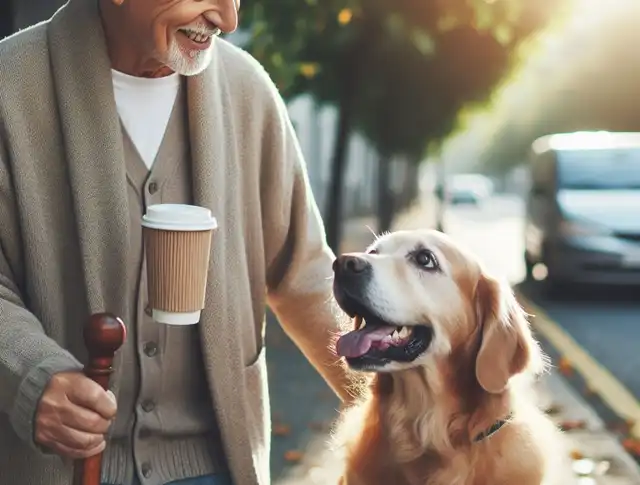Veterinarian Warns Against Dangerous Foods for Dogs
- Normal Liver Cells Found to Promote Cancer Metastasis to the Liver
- Nearly 80% Complete Remission: Breakthrough in ADC Anti-Tumor Treatment
- Vaccination Against Common Diseases May Prevent Dementia!
- New Alzheimer’s Disease (AD) Diagnosis and Staging Criteria
- Breakthrough in Alzheimer’s Disease: New Nasal Spray Halts Cognitive Decline by Targeting Toxic Protein
- Can the Tap Water at the Paris Olympics be Drunk Directly?
Veterinarian Warns Against Dangerous Foods for Dogs
- Should China be held legally responsible for the US’s $18 trillion COVID losses?
- CT Radiation Exposure Linked to Blood Cancer in Children and Adolescents
- FDA has mandated a top-level black box warning for all marketed CAR-T therapies
- Can people with high blood pressure eat peanuts?
- What is the difference between dopamine and dobutamine?
- How long can the patient live after heart stent surgery?
Veterinarian Warns Against Dangerous Foods for Dogs
To safeguard the health and lives of beloved dogs, it’s crucial to be aware of foods that can have negative effects on their bodies, and in some cases, even be life-threatening.
In this article, Dr. Jerry Klein, Chief Veterinary Officer of the American Kennel Club and an expert in emergency medicine, explains the “Dangerous Foods for Dogs.”
(Note: This article is not a substitute for professional diagnosis. If you have any concerns about your dog’s symptoms, always consult a veterinarian for advice.)
Foods Dangerous for Dogs
The impact of certain foods on a dog’s body varies based on factors such as quantity, breed, size, and age. If your dog accidentally consumes a hazardous food item, it’s crucial to consult a veterinarian rather than making self-assessments.
- Chocolate
- Grapes, raisins
- Garlic, onions, chives, green onions
- Products containing xylitol (mint, toothpaste, gum, cough syrup, etc.)
- Alcoholic beverages, foods containing alcohol
- Macadamia nuts
- Tobacco and e-cigarettes
- Avocado (varied opinions on the acceptable intake for dogs)
- Corn cobs or avocado seeds (can lead to intestinal obstruction, not just poisoning)
- Fermenting yeast in dough and foods high in fat
(Note: Some information is based on data released by the U.S. Food and Drug Administration (FDA).)
Dr. Klein emphasizes, “Many people are aware that giving chocolate to dogs is a big no. Even a small amount is toxic to dogs.” Dark chocolate poses a higher risk, and smaller dogs are more susceptible to the dangers of chocolate ingestion.
Grapes and raisins are also foods dogs should avoid, as even a single grape can lead to poisoning with symptoms manifesting within approximately 48 hours. Dr. Klein notes that kidney problems are a common outcome.
Both garlic (a cause of hemolytic anemia) and onions (especially raw onions) are strictly forbidden for dogs. Powdered forms like garlic or onion powder are also hazardous. Ingredients commonly used in Japan, such as chives and green onions, fall under the same category.
Foods to Be Cautious About When Feeding Dogs
When selecting pet food, it’s essential to check the ingredient list. Dr. Klein advises, “Dog food with only one type of protein is recommended. While there are dog foods with multiple proteins, identifying the cause of issues like diarrhea or chronic skin problems can become challenging.”
For dogs with health concerns, opt for bland-tasting, non-irritating foods. Foods with high fat content, like pork and ham, can cause diarrhea or pancreatitis in some dogs, as mentioned in the FDA’s list of foods to avoid.
Bones, often sold as dog treats, are generally safe in moderation. However, raw bones may harbor bacteria, and heated bones can splinter easily. Dr. Klein warns, “It’s very difficult to remove bone fragments if ingested, so caution is advised when giving them.”
Considerations When Switching Dog Food
Avoid abruptly changing your dog’s food type or introducing large quantities of new food. Dr. Klein advises, “When changing their diet, gradually transition from the old food to the new one over time.”
Monitoring your dog’s response to specific foods is essential. Pay attention to factors like stool consistency, overall health, weight, muscle condition, and normal bowel movements. Any signs of concern should prompt a consultation with a veterinarian.
Ensuring a safe diet is a responsibility of pet owners. Don’t overlook subtle signs of health changes, and if there are any worries, consult a veterinarian promptly.

Veterinarian Warns Against Dangerous Foods for Dogs
source: https://news.yahoo.co.jp/articles/ace945bc61606af5500dca7c10d3a99759bf23b2
(source:internet, reference only)
Disclaimer of medicaltrend.org
Important Note: The information provided is for informational purposes only and should not be considered as medical advice.



